PPI in the NCAPOP
We have a range of case studies which demonstrate real examples of implementation of patient and public involvement in clinical audit. Most of these were selected for our Richard Driscoll Memorial Awards. Click on the case studies below to view them.
PPI Case Studies 2020
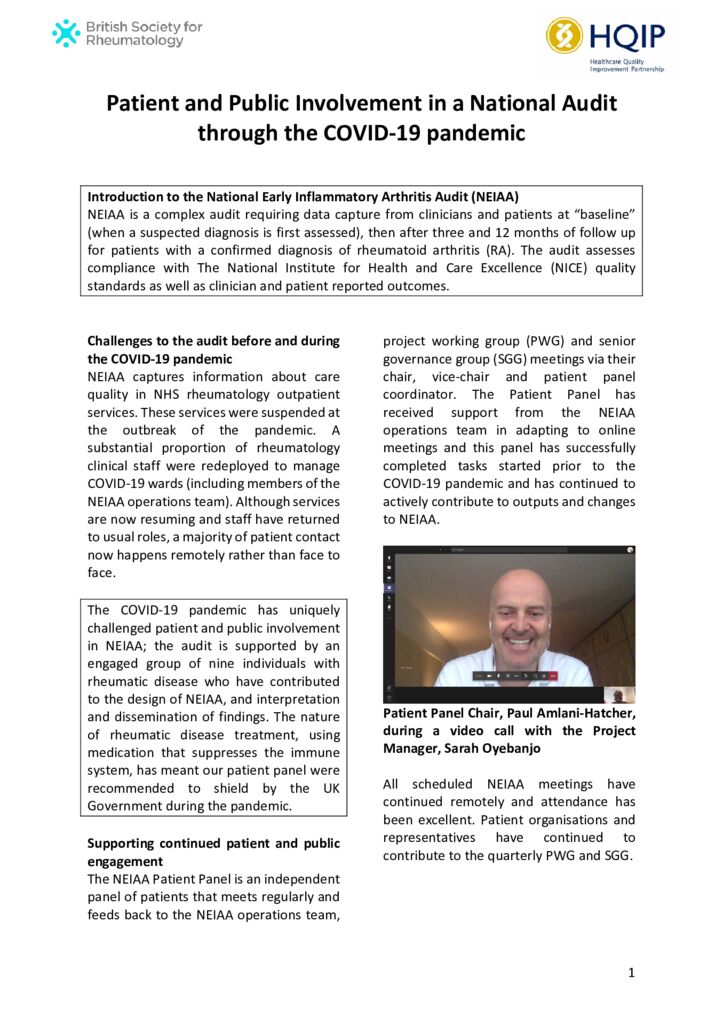 |
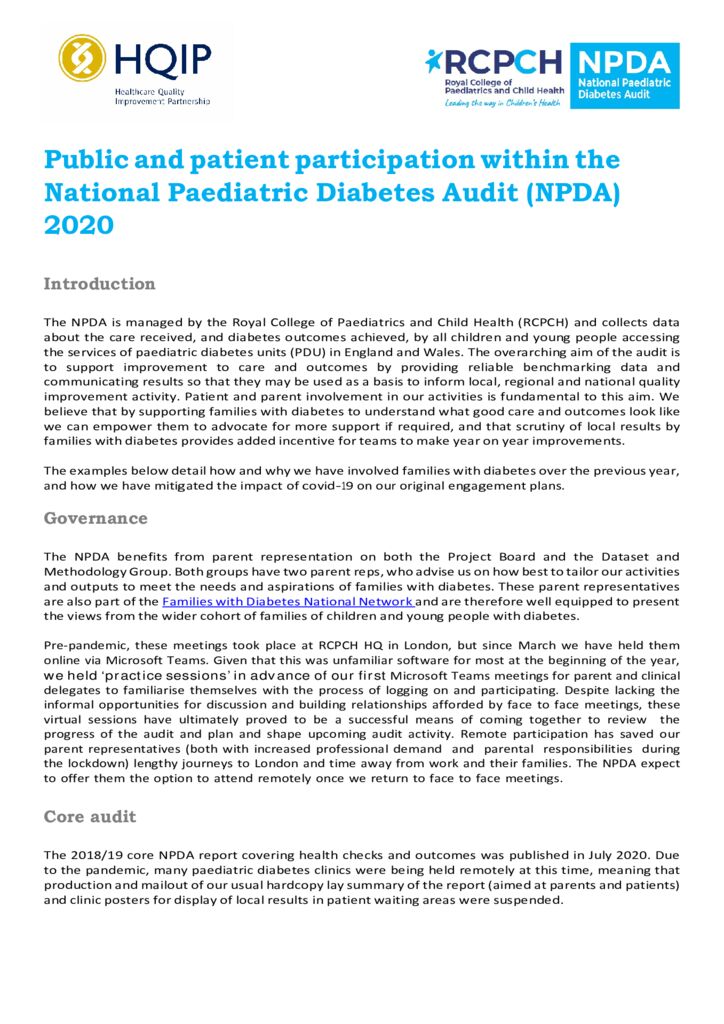 |
|
National Early Inflammatory Arthritis Audit
The RDMA20 winner National Early Inflammatory Arthritis Audit’s case study demonstrates a patient led approach to their patient focused outputs and ongoing engagement with the patient panel through COVID. |
National Paediatric Diabetes Audit
This Highly Commended RDMA20 submission from NPDA demonstrates strong involvement from families throughout the project and utilises various innovative approaches with co-creation by the Families with Diabetes National Network. |
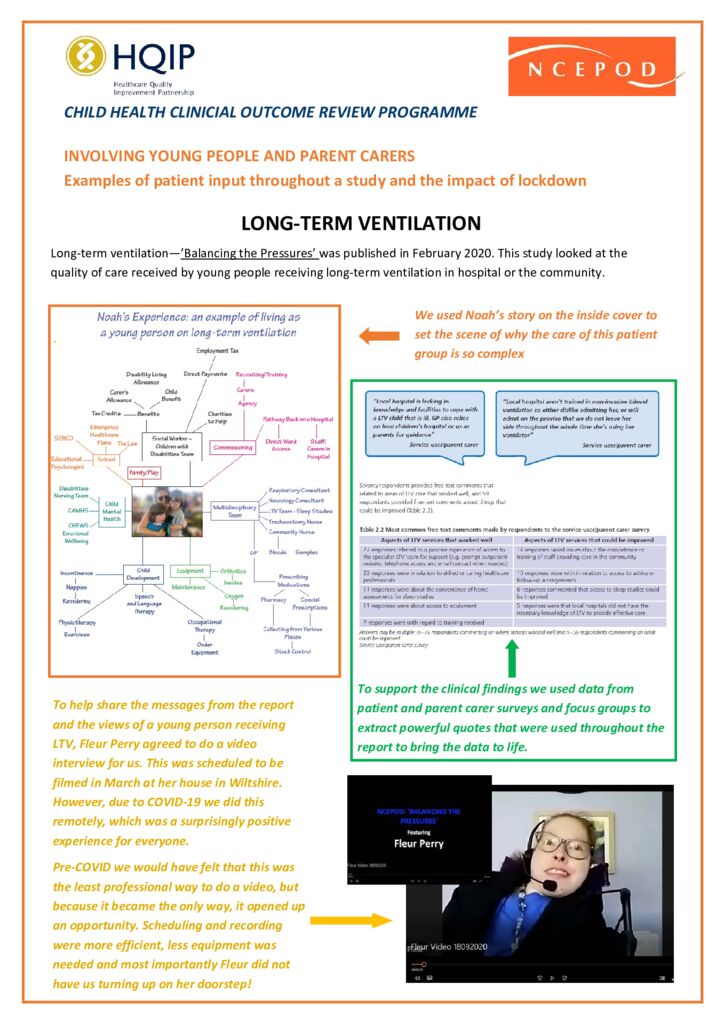 |
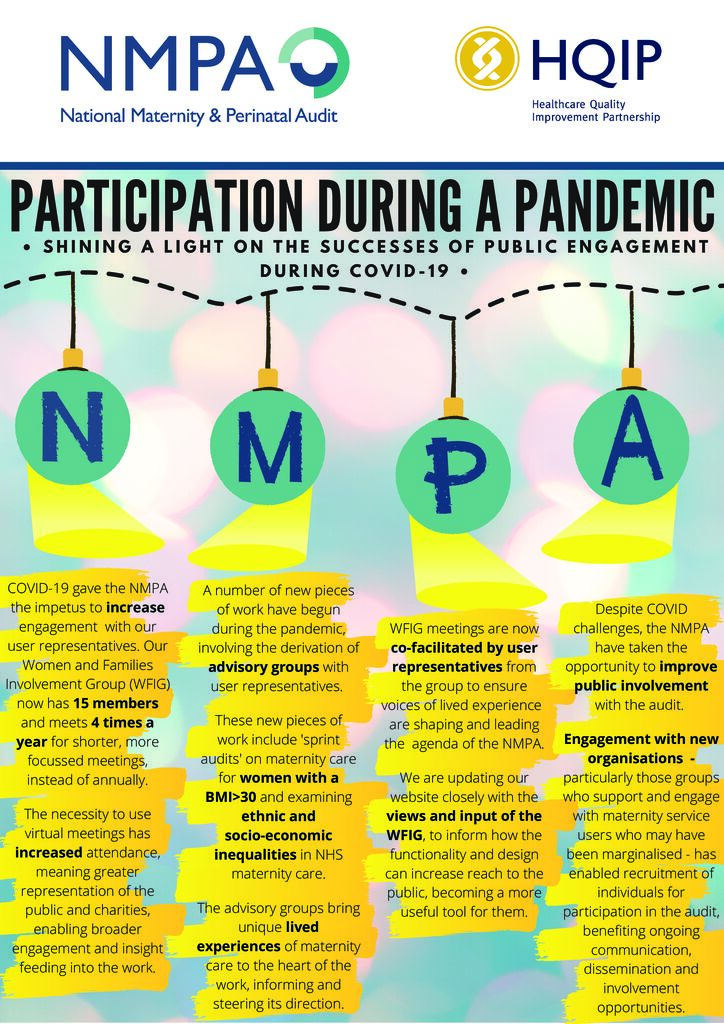 |
|
Child Health Clinical Outcomes Review Programme
This RDMA20 entry adapted through the first Lockdown period in 2020 by using various communication methods to engage with services users in more accessible ways. |
National Maternity and Perinatal Audit
This RDMA 20 entry highlights increased engagement through Lockdown, engaging with marginalised groups by using new models with greater service user ownership. |
|
National Audit of Dementia
This RDMA20 entry demonstrates innovation and flexibility during Lockdown to collect vital information from patients, carers and clinical leads to produce useful findings to highlight an important issue. The audit showed a high degree of patient and carer feedback in adapting to the challenges that the pandemic presented.
https://www.hqip.org.uk/resource/national-audit-of-dementia-rdma20-case-study |
Falls and Fragility Fracture Audit Programme
FFFAP, highly commended in previous years have consistently shown a commitment to involving patients and carers within their audit programme. The patient panel are enthusiastic and engaged and throughout 2020 have remained positive as illustrated in this blog where the team describe how the PPI…
https://www.hqip.org.uk/falls-and-fragility-fracture-audit-programme-rdma20-case-study |
|
National Neonatal Audit Programme
The NNAP team work very closely with their parent representatives and this blog highlights the benefits of working practices during lockdown and how it improved accessibility for interested parents to be involved with examples of outputs and impact throughout 2020.
https://www.hqip.org.uk/national-neonatal-audit-programme-rdma20-case-study |
|
PPI Case studies 2019
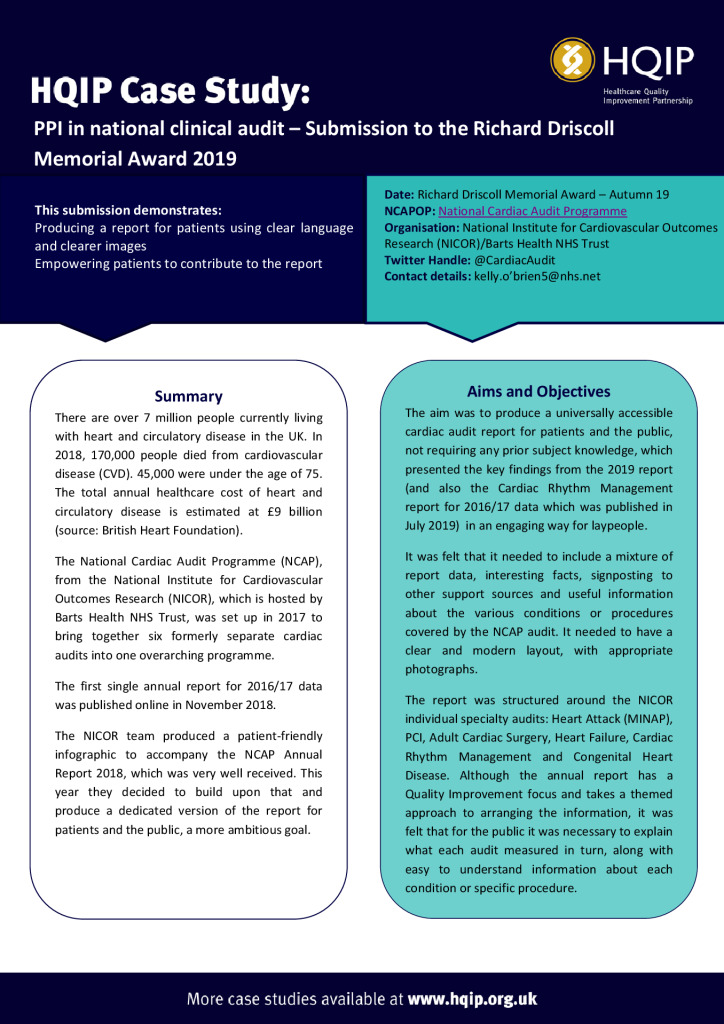 |
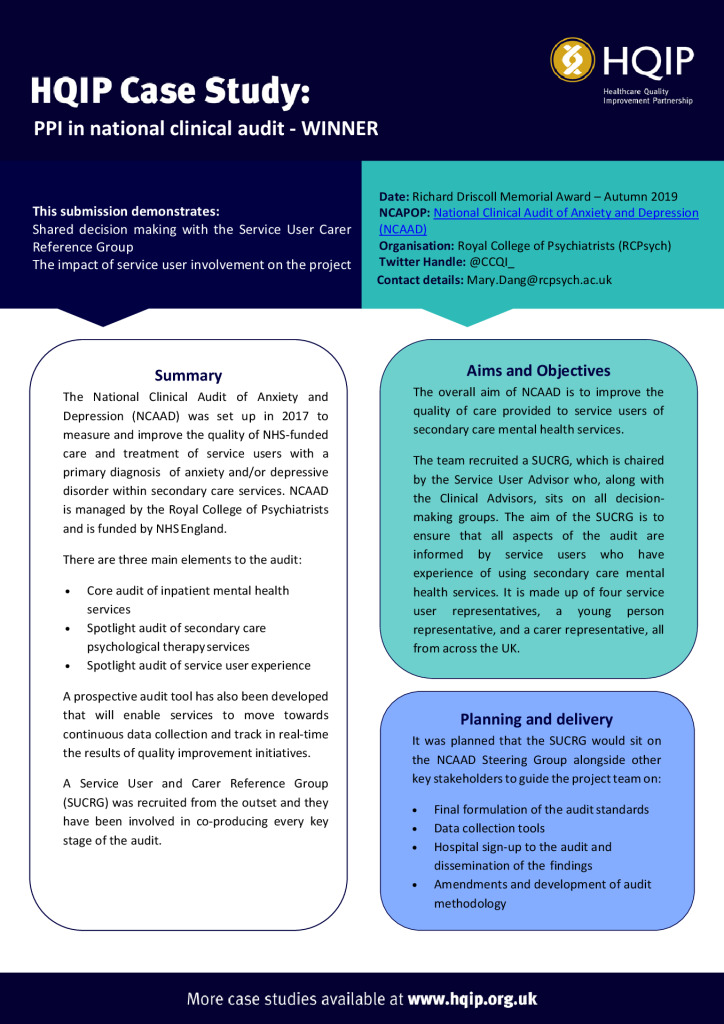 |
|
National Cardiac Audit Programme
The National Cardiac Audit Programme (NCAP), from the National Institute for Cardiovascular Outcomes Research (NICOR), which is hosted by Barts Health NHS Trust, was set up in 2017 to bring together six formerly separate cardiac audits into one overarching programme.
|
National Clinical Audit of Anxiety and Depression
The National Clinical Audit of Anxiety and
Depression (NCAAD) was set up in 2017 to
measure and improve the quality of NHS-funded
care and treatment of service users with a
primary diagnosis of anxiety and/or depressive
disorder within secondary care services.
|
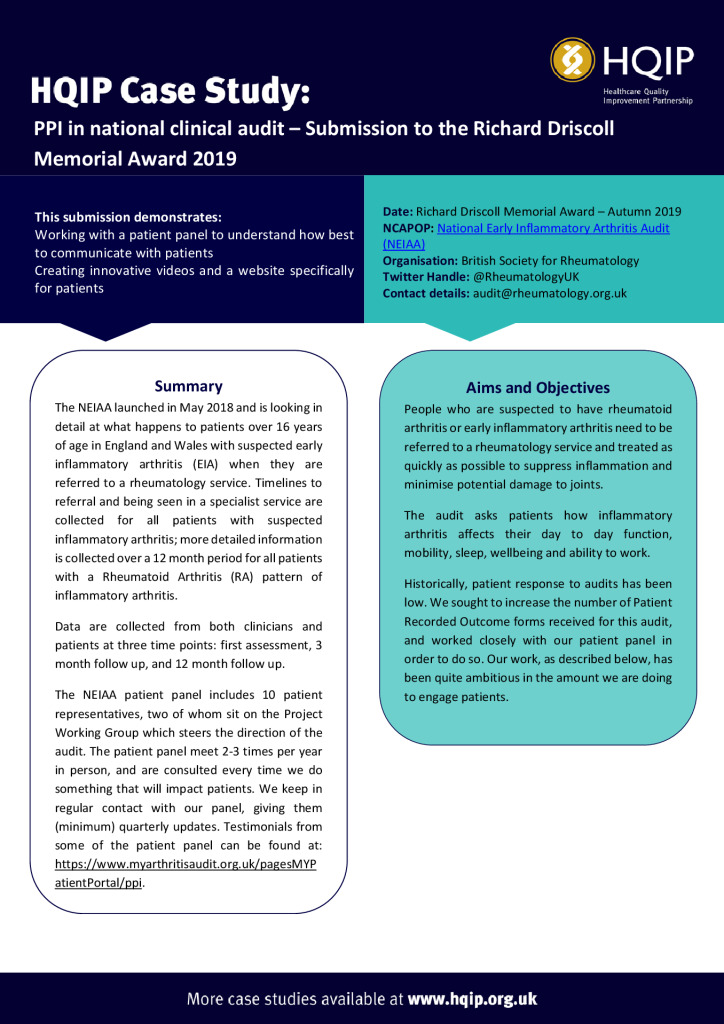 |
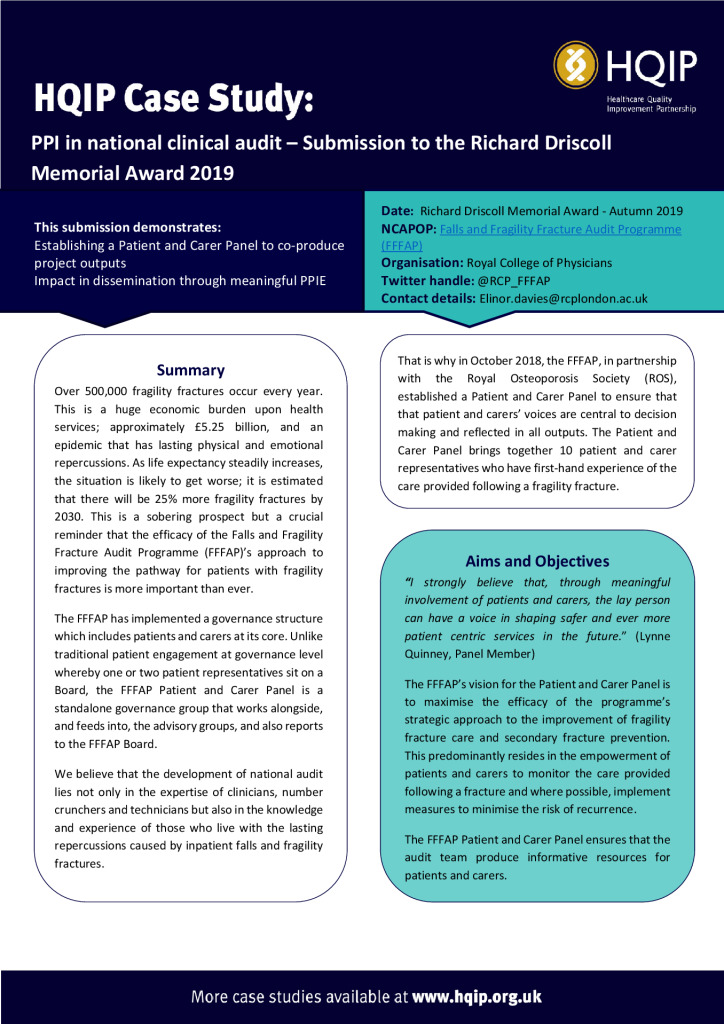 |
|
National Early Inflammatory Arthritis Audit
The NEIAA launched in May 2018 and is looking in
detail at what happens to patients over 16 years
of age in England and Wales with suspected early
inflammatory arthritis (EIA) when they are
referred to a rheumatology service.
|
National Falls and Fragility Fracture Audit
Over 500,000 fragility fractures occur every year.
This is a huge economic burden upon health
services; approximately £5.25 billion, and an
epidemic that has lasting physical and emotional
repercussions.
|
PPI Case studies 2018
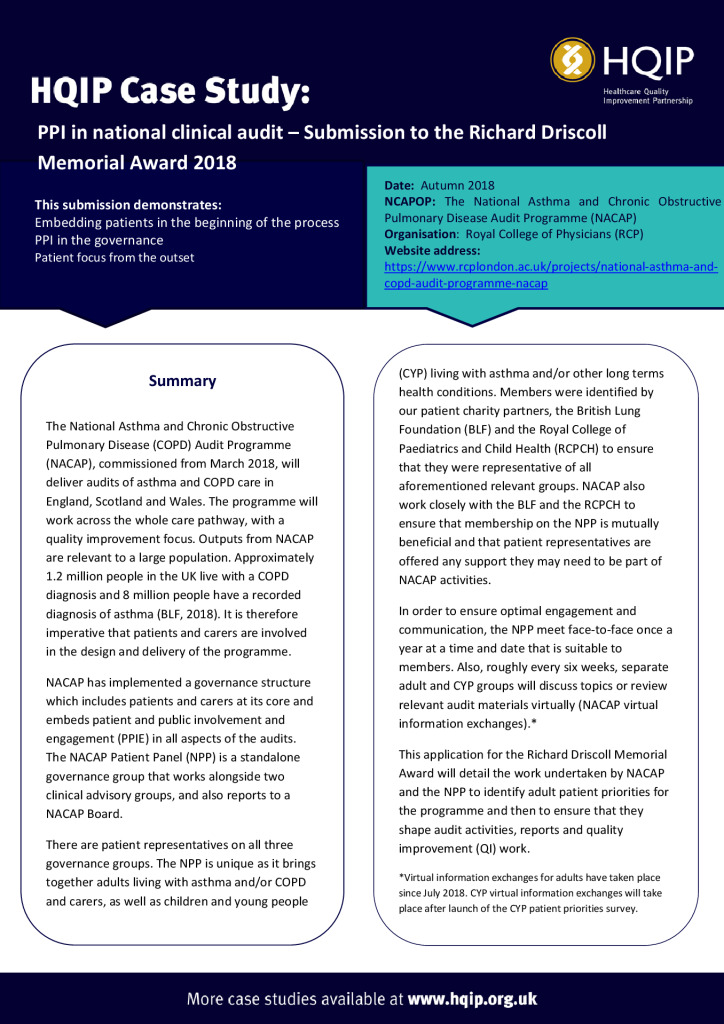
National Asthma and COPD Audit Programme
The National Asthma and Chronic Obstructive Pulmonary Disease (COPD) Audit Programme (NACAP) delivers audits of asthma and COPD care in England, Scotland and Wales |
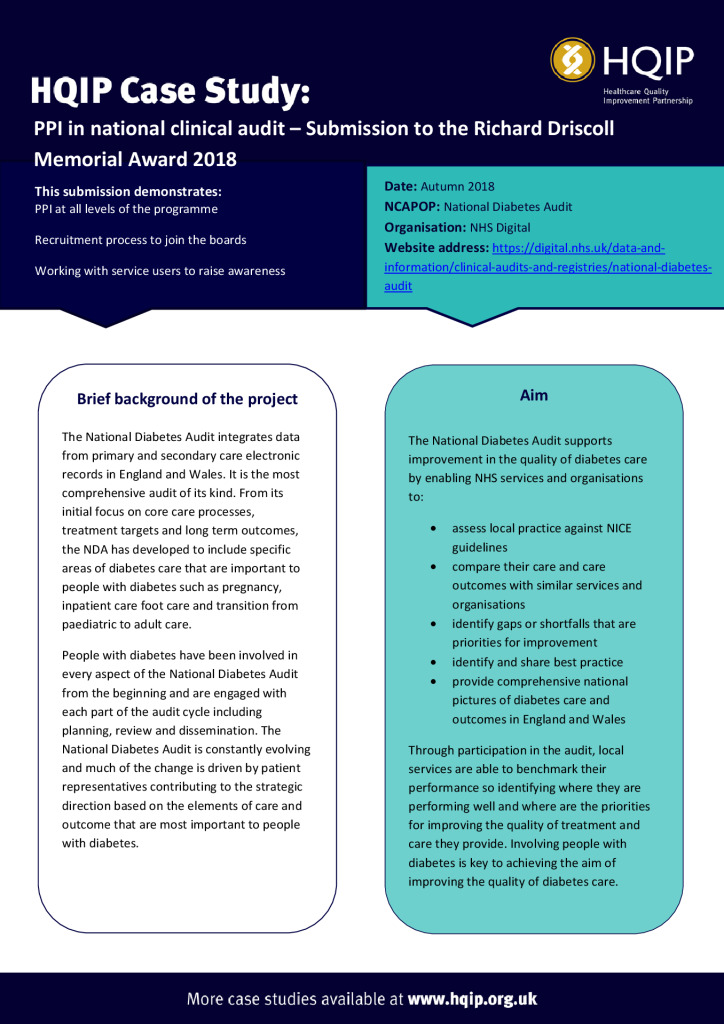
National Diabetes Audit
The National Diabetes Audit integrates data from primary and secondary care electronic records in England and Wales |
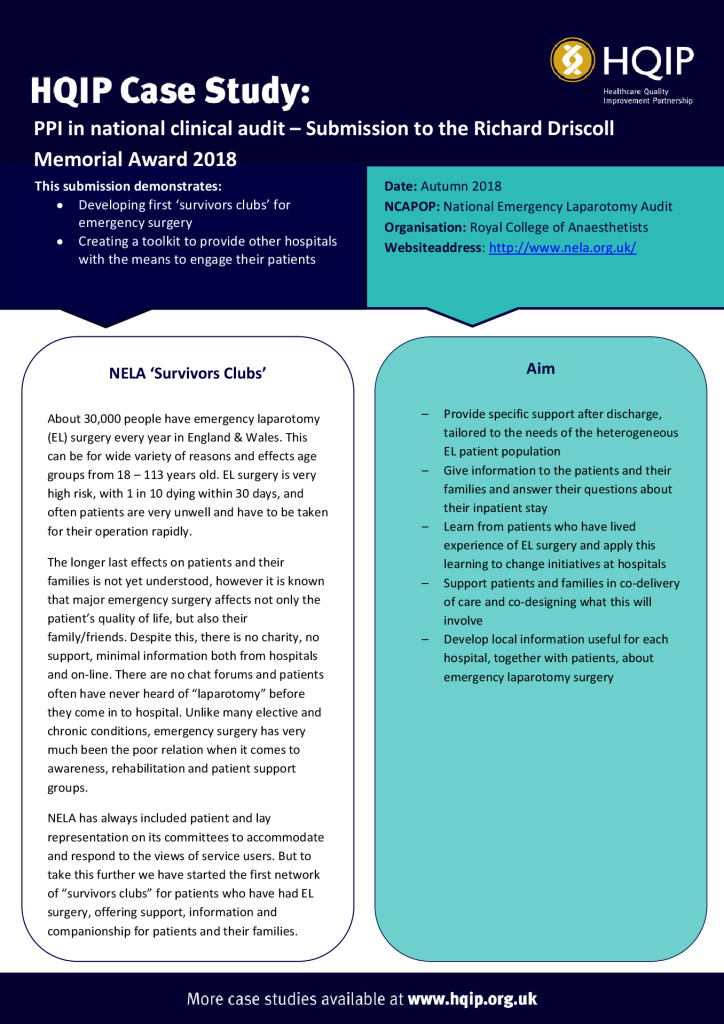
National Emergency Laparotomy Audit
About 30,00 people have emergency laparotomy (EL) surgery every year in England & Wales. This can be be for a wide variety of reasons and effects age groups from 18-113 years old. EL surgery is very high risk, with 1 in 10 dying within 30 days |
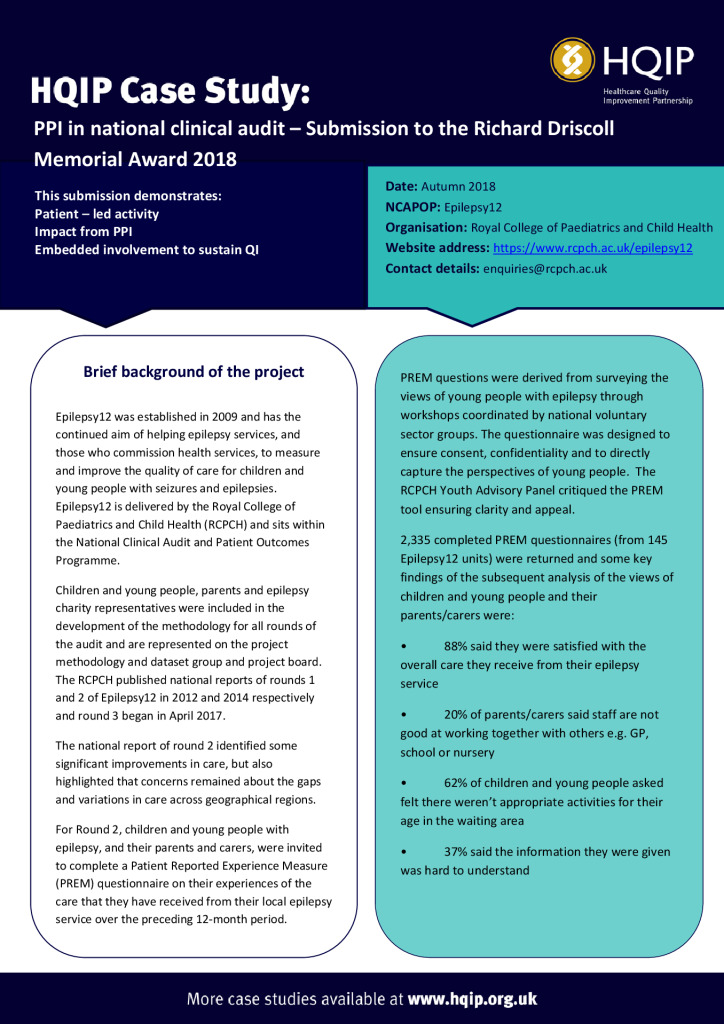
Epilepsy12
Epilepsy12 was established in 2009 and has continued aims of helping epilepsy services, and those who commission health services, to measure and improve the quality of care for children and young people with seizures and epilepsies |
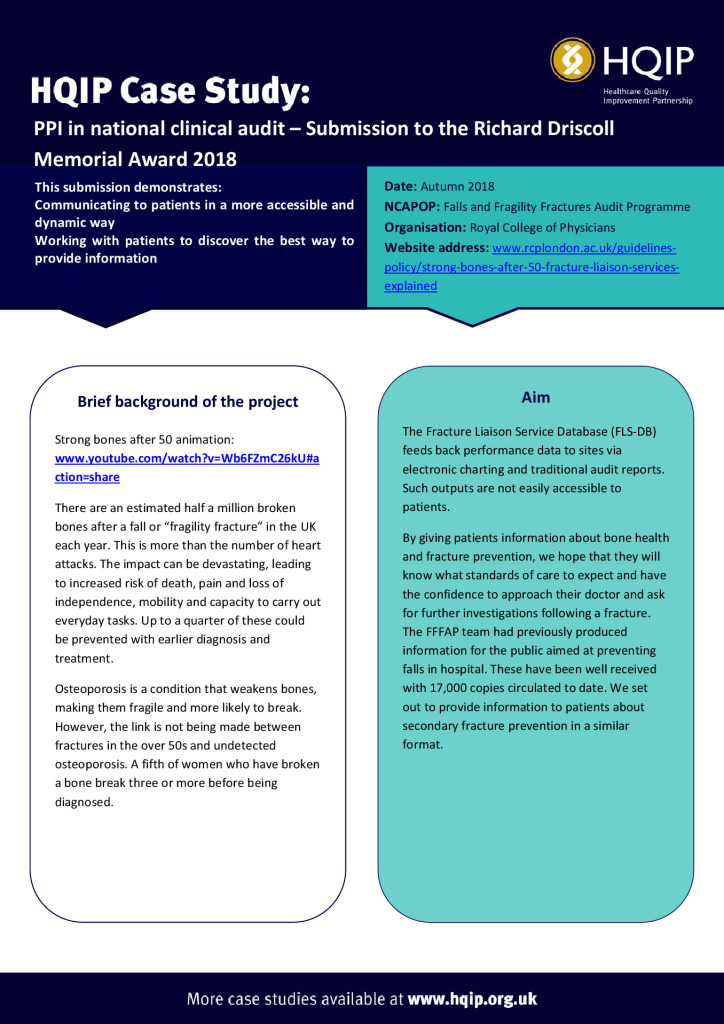
National Falls and Fragility Fracture Audit
There are an estimated half a million broken bones after a fall in the UK each year. The Fracture Liaison Service Database (FLS-DB) feeds back performance data |
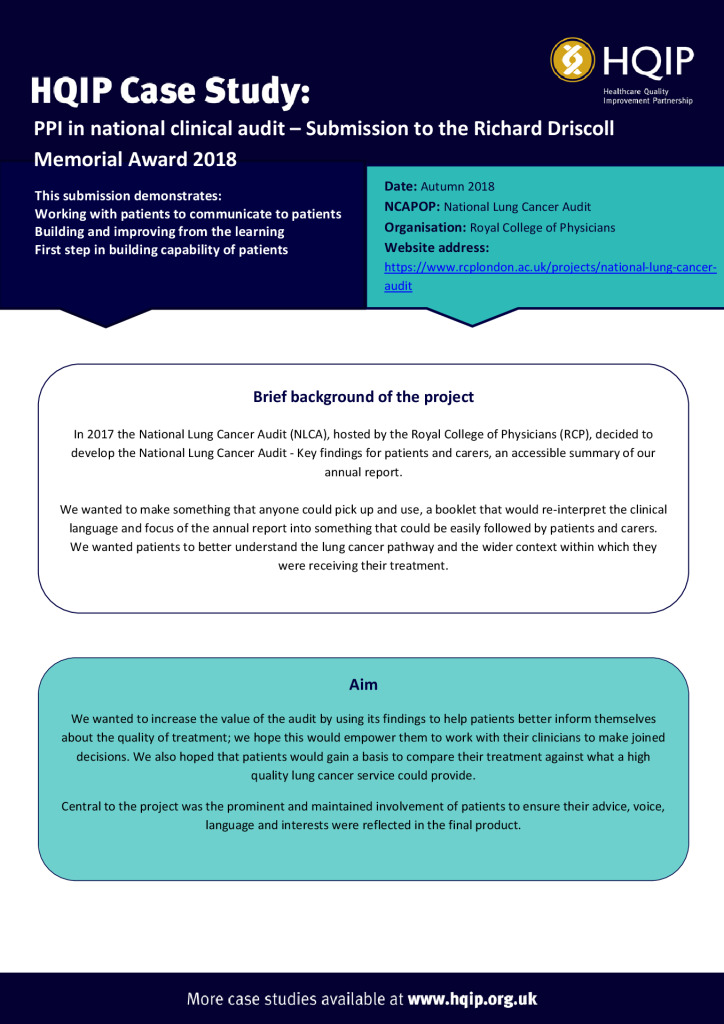
National Lung Cancer Audit
In 2017 the National Lung Cancer Audit (NCLA), hosted by the Royal College of Physicians (RCP), decided to develop the National Lung Cancer Audit |
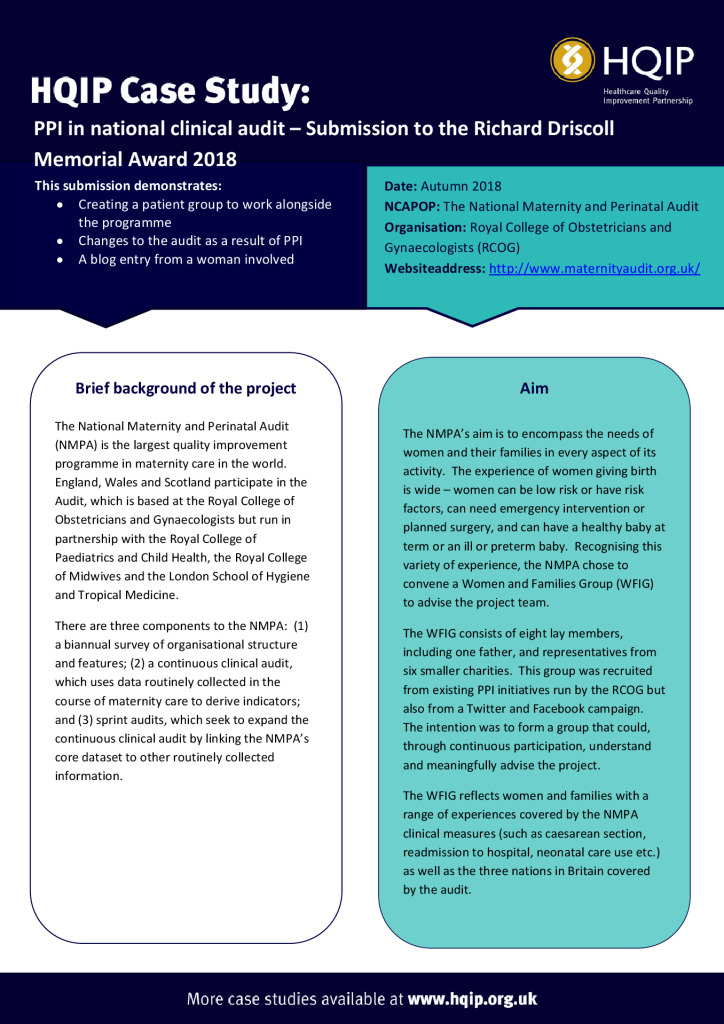
National Maternity and Perinatal Audit
The National Maternity and Perinatal Audit (NMPA) is the largest quality improvement programme in maternity care in the world
|
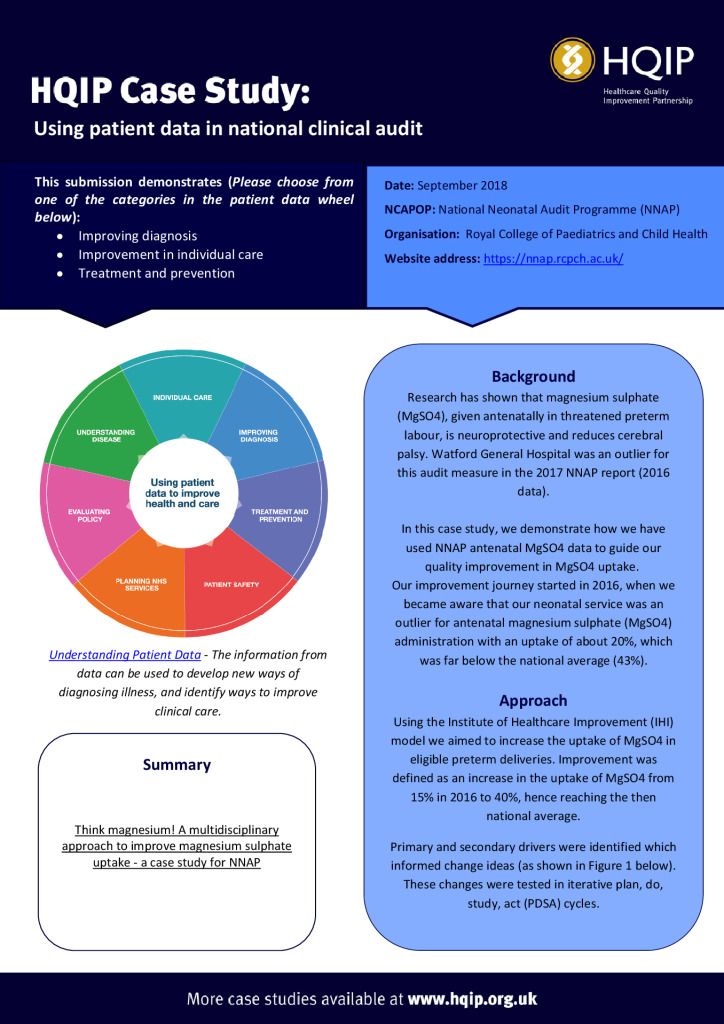
National Neonatal Audit
The National Neonatal Audit Programme assess whether babies admitted to neonatal units in England and Wales receive consistent and high-quality care as measured by adherence to a set of agreed professional guidelines and standards |

















